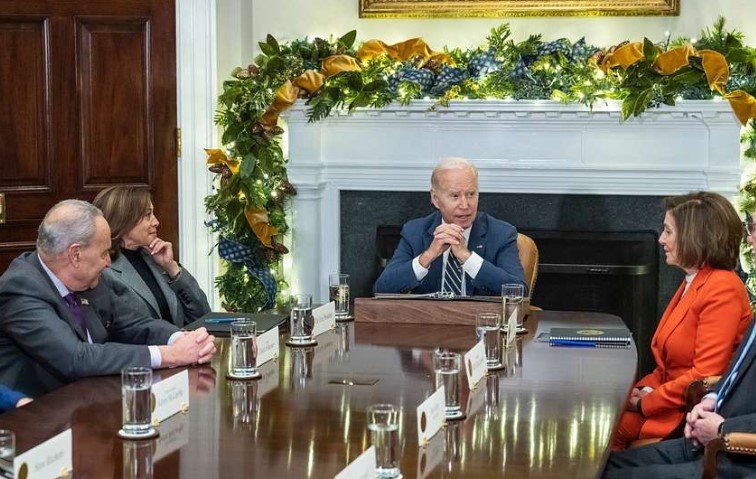In a surprising turn of events, President Joe Biden has announced his withdrawal from the 2024 presidential race, endorsing Vice President Kamala Harris as his preferred successor. This decision marks a significant shift in the Democratic Party’s strategy for the upcoming election. Biden, who has served as the 46th President of the United States, stated that stepping down is in the best interest of the party and the country. Harris, who could become the first Black woman and first Asian American to lead a major party’s ticket, expressed her gratitude and determination to win the nomination.
Biden’s Decision and Its Impact
President Biden’s decision to withdraw from the race has sent shockwaves through the political landscape. He cited the need for new leadership and the importance of unity within the Democratic Party as key reasons for his decision. Biden emphasized that his endorsement of Harris is a testament to her capabilities and vision for the future. This move is seen as a strategic effort to consolidate support within the party and present a united front against the Republican nominee.
The announcement has garnered mixed reactions from political leaders and the public. Some Democrats have praised Biden’s decision, viewing it as a selfless act that prioritizes the party’s success over personal ambition. Others, however, have expressed concerns about Harris’s electability and the challenges she may face in a general election. Despite these concerns, Biden’s endorsement is expected to significantly boost Harris’s campaign, providing her with access to the president’s extensive network of supporters and donors.

Harris, in her response, expressed her deep appreciation for Biden’s support. She highlighted her commitment to continuing the work they started together and building on the administration’s achievements. Harris’s campaign is expected to focus on key issues such as healthcare, climate change, and social justice, aiming to resonate with a broad spectrum of voters.
Reactions from Political Figures
The political world has been abuzz with reactions to Biden’s announcement. Prominent Democrats, including key members of Congress and state governors, have rallied behind Harris, endorsing her candidacy and praising Biden’s decision. Representative James Clyburn, a significant figure in the Democratic Party, has publicly supported Harris, emphasizing her qualifications and leadership skills. This endorsement is particularly noteworthy given Clyburn’s influential role in Biden’s 2020 primary victory.
On the Republican side, reactions have been predictably critical. Former President Donald Trump and his allies have seized the opportunity to attack both Biden and Harris. Trump, who is expected to be the Republican nominee, has already begun framing Harris as a continuation of what he describes as the failures of the Biden administration. This narrative is likely to be a central theme in the Republican campaign, as they seek to capitalize on any perceived weaknesses in Harris’s candidacy.
Internationally, Biden’s decision has also attracted attention. Leaders from various countries have expressed their views, with some praising Biden’s statesmanship and others questioning the implications for U.S. foreign policy. Harris’s potential presidency is being closely watched, as it could signal a continuation of Biden’s policies or a shift in certain areas.
Harris’s Path Forward
With Biden’s endorsement, Kamala Harris now faces the challenge of securing the Democratic nomination and preparing for a potentially contentious general election. Her campaign strategy will likely involve a combination of highlighting her achievements as Vice President and addressing the concerns of voters who may be skeptical of her candidacy. Harris’s ability to unite the Democratic Party and appeal to a diverse electorate will be crucial in the coming months.
Harris’s campaign is expected to focus on key policy areas that resonate with the Democratic base. Healthcare reform, climate action, and social justice are likely to be central themes. Additionally, Harris will need to address the economic concerns of voters, particularly in the wake of the COVID-19 pandemic and its aftermath. Her ability to articulate a clear and compelling vision for the future will be essential in winning over undecided voters and solidifying her support base.
The road ahead for Harris is undoubtedly challenging, but with Biden’s endorsement and the support of key Democratic figures, she enters the race with significant momentum. Her campaign will need to navigate the complexities of a highly polarized political environment, counter Republican attacks, and build a broad coalition of supporters. As the first Black woman and first Asian American to potentially lead a major party’s ticket, Harris’s candidacy represents a historic moment in American politics.
